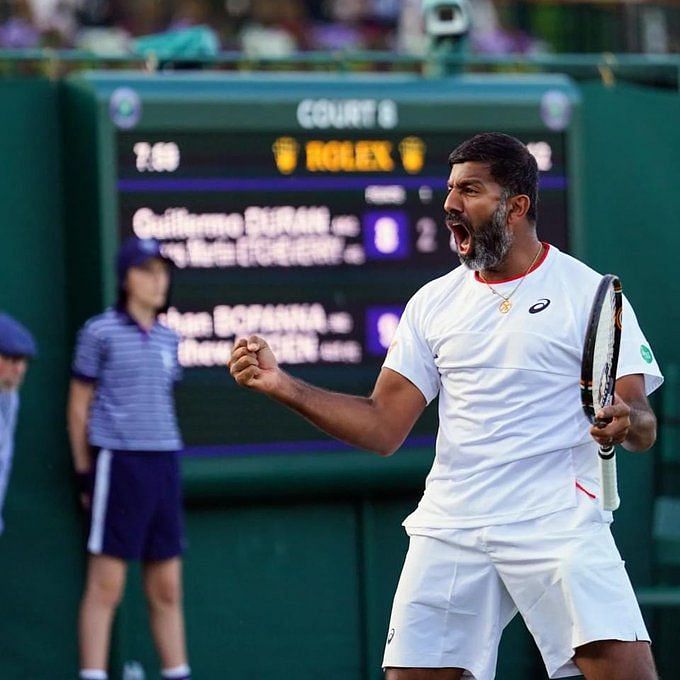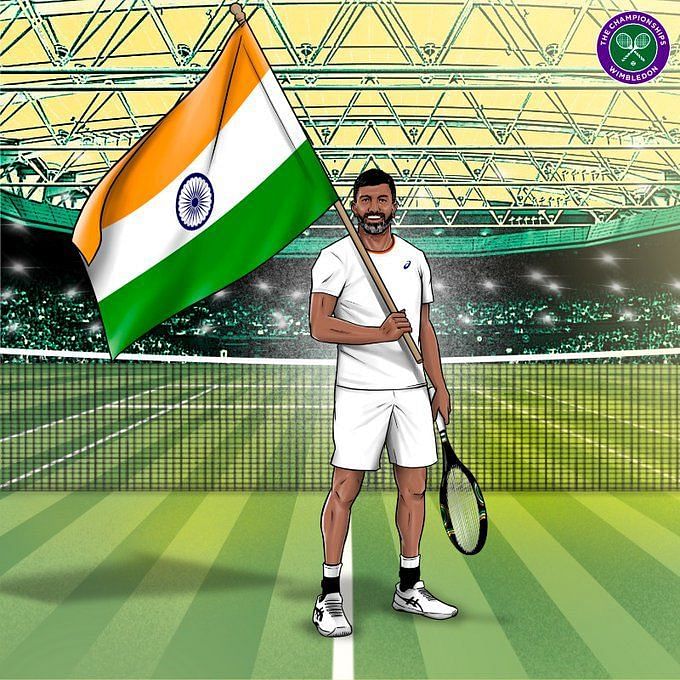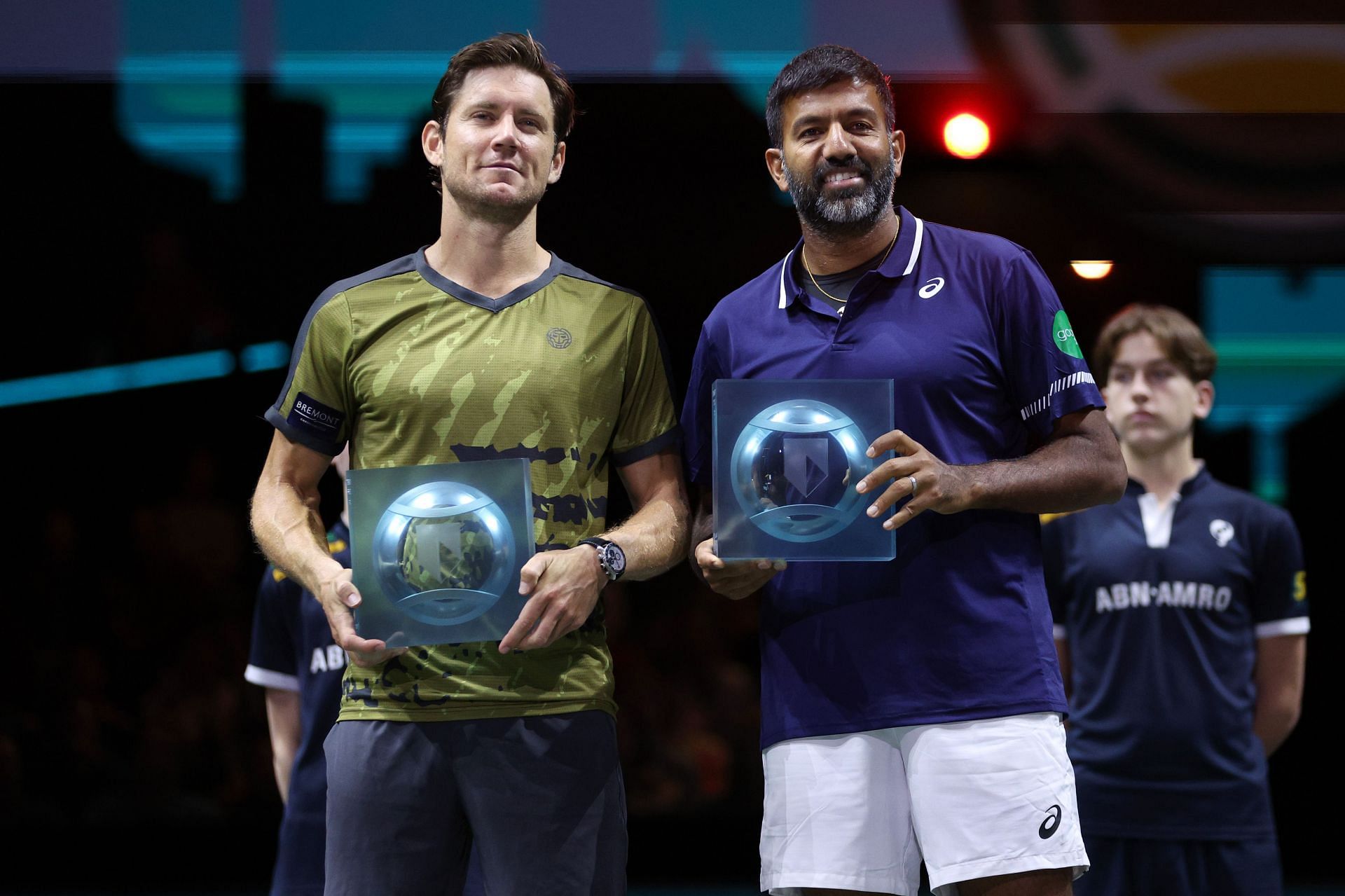
"Representing India at big events like Wimbledon is humbling and special"- Rohan Bopanna [Exclusive]
As a player of versatility and finesse, Rohan Bopanna has undoubtedly made a significant impact on the international tennis circuit. With his never-give-in attitude, blazing quick serves, and voguish on-court moves, he has become a treat for tennis fanatics worldwide.
At 43, he has scaled greater heights. With an impressive No. 7 doubles ranking, he proves his dedication and excellence on the court. Bopanna's journey to success includes remarkable achievements in Grand Slam tournaments, including the championship in the Mixed Doubles category at the 2017 French Open.
Consistency has been a cornerstone of Bopanna's career, with notable appearances in the Semi-Finals of the Men's Doubles at the 2022 French Open and at Wimbledon in 2013, 2015, and 2023. Additionally, his remarkable run to the Final of the Men's Doubles at the 2010 US Open further cements his status as one of India's most accomplished tennis icons.
Tennis has been the heartbeat of Bopanna's life. Through the ups and downs of his tennis journey, Bopanna firmly believes that every match has been a level playing field. It's his brainchild, "Doubles Dream of India," that truly takes the cake - an initiative aimed at nurturing and championing doubles tennis talent in his homeland. With this endeavor, he's not only serving aces but also smashing barriers to elevating India's tennis standing on the global stage.
In an exclusive interview with Sportskeeda, the Indian tennis sensation Bopanna discussed his journey and experiences, his impressions of his fellow Indian tennis players, and his vision for the future of Indian tennis on the international stage.
Excerpts from Rohan Bopanna's interview
Q) Over the course of your tennis career, you have achieved remarkable success and reached significant milestones. Looking back, what do you consider to be the defining moment or turning point that propelled you toward becoming the successful doubles player you are today?
Rohan Bopanna: The number one thing that made a significant difference in my career was our breakthrough year in 2010 when I partnered with Aisam Qureshi. Reaching the quarterfinals at Wimbledon and making the finals of the US Open in the same year was a defining moment for us. We had decided to fully focus on doubles at the beginning of that year, and aiming for success in Grand Slam events was our goal.
Participating in the Grand Slam tournaments, with their large draws of 64 doubles, was the only way to break through, perform well, and play in all the major events.
Winning a Grand Slam in doubles had always been a dream for me, and after reaching the final in one Grand Slam, my next goal was to win it. That dream came true in 2017 when I won the mixed doubles with Dabrowski at the French Open. It was a remarkable and proud moment, especially when I reflect on the challenges and hardships I had faced throughout my journey.
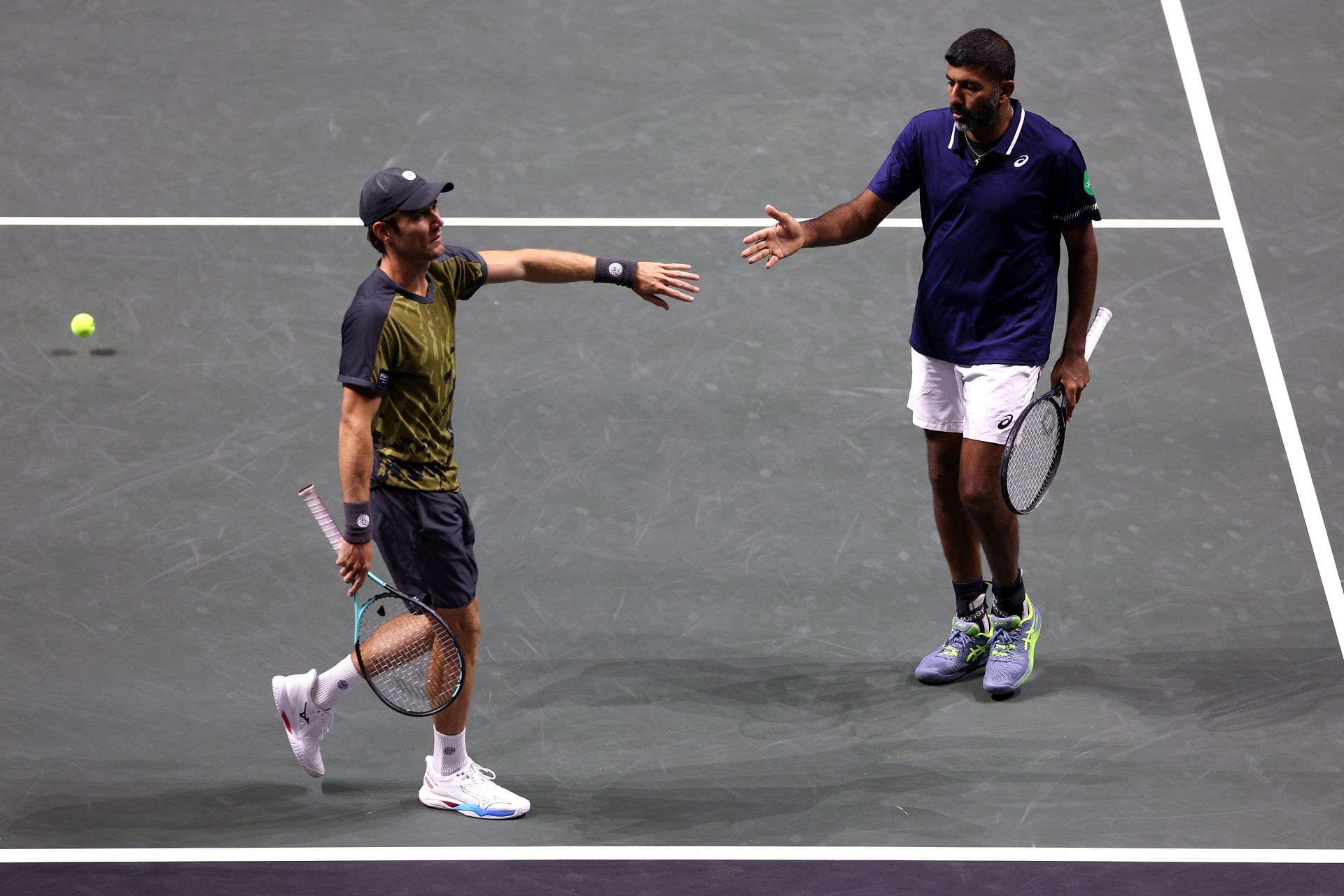
Q) As a player, what emotions do you experience when stepping onto the grass courts of Wimbledon, and how do you adapt your game to suit the unique challenges of playing on grass?
Rohan Bopanna: Grass courts are an amazing feeling, and playing on them brings a lot of unpredictability, especially with the bounces. The quickness of the courts compared to the rest of the year adds to the excitement. Playing at Wimbledon, the Mecca for sport is a tremendous and magical experience that never gets old. Representing India at big events like Wimbledon is humbling and special. The magnitude of the event is incredible, and it feels amazing to be part of such a significant competition.
Q) During your run in Wimbledon 2023, what were the key moments and strategies you and Matthew Ebden employed? Additionally, how did you both maintain composure and performance levels as matches progressed and became more competitive?
Rohan Bopanna: The number one thing is to trust each other's game and believe in doing well together as a team. After losing early in the last two Grand Slams, we were determined to focus and play well together. In the first round, we faced a tough match against the Argentines, which is always tricky in a new tournament with everyone feeling a bit nervy.
However, we started off well in the third set, but then had a bad game and faced match point. Thankfully, we fought through it and gradually improved as a team. In the third round, we encountered a strong opponent (Stadler and Pel) who had nothing to lose and came out firing. Despite being down three points, we maintained our fighting spirit and focused on each individual point.
The key to making the semifinals was playing well as a team. Instead of just performing well individually, we played cohesively as a unit, which made a significant difference in our performance at Wimbledon this year.
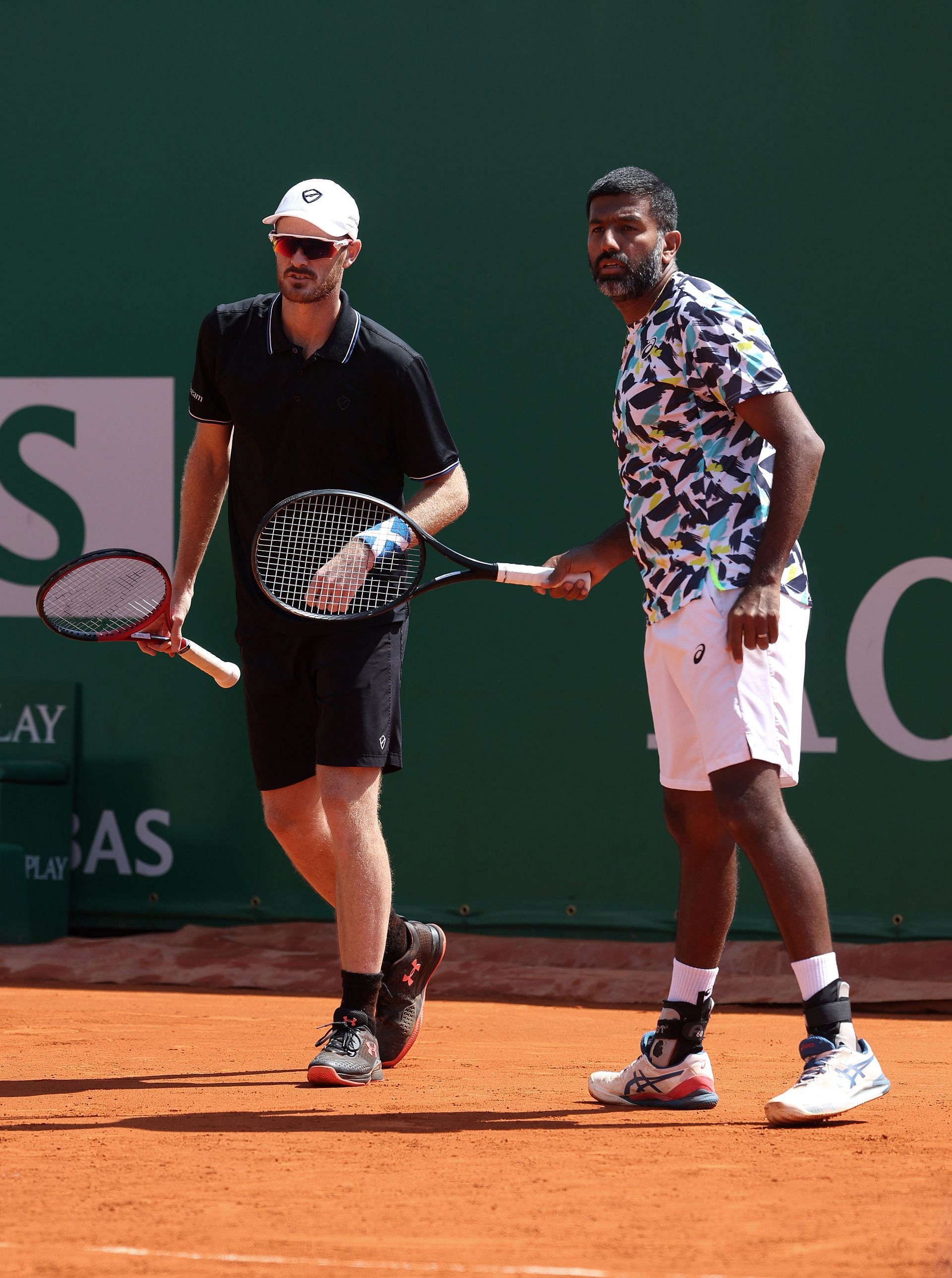
Q) As a highly successful doubles player, team dynamics and communication with your partner on the court are crucial. Can you share how you approach these aspects of the game? Also, how do you adapt your strategy when facing different opponents?
Rohan Bopanna: When going into a match, it's crucial to have both plan A and plan B because plan A may not always work. Having a backup strategy is essential. Some days, our performance wasn't at its best, so we focused on maintaining a high percentage of serves and returns.
Every ball we put in play increased our chances of winning the match. By focusing on hitting a lot of first-serve percentages, we put ourselves in a strong position and allowed the match to unfold from there. This approach made a difference and contributed to our success this year.
Q) At the cusp of 43, you seem to be performing exceptionally well. Can you describe your daily training regimen and how it has evolved over the years to keep up with the demands of professional tennis, both physically and mentally?
Rohan Bopanna: The number one key to my success at this level is my mental strength. Every time I step onto the court, I believe I have a 100% chance of winning the match, and that mindset has helped me sustain my performance over the years. My ability to constantly persevere and adapt to my training regime has been crucial in my journey.
When I was growing up, I focused on running, weight training, and building endurance. However, over the years, wear and tear on my body, including the lack of cartilage in my knees, led to significant pain. In 2019, I was taking multiple painkillers a day, making me question whether it was worth continuing.
During the COVID pandemic, my cousin sister suggested I try Iyengar yoga, even at the age of 40. With some time off from tennis, I decided to give it a shot. The yoga sessions, focusing on strengthening my quads and glutes, brought about a significant improvement in my game.
Additionally, I started focusing on mobility and recovery, incorporating stretching and dynamic workouts before and after training and matches. I began using ice baths and getting massages for better recovery. These changes, along with my constant pursuit of learning in tennis, and taking advice from coaches and trainers, have contributed to my ability to continue competing at the highest level and challenge the best players in the world.
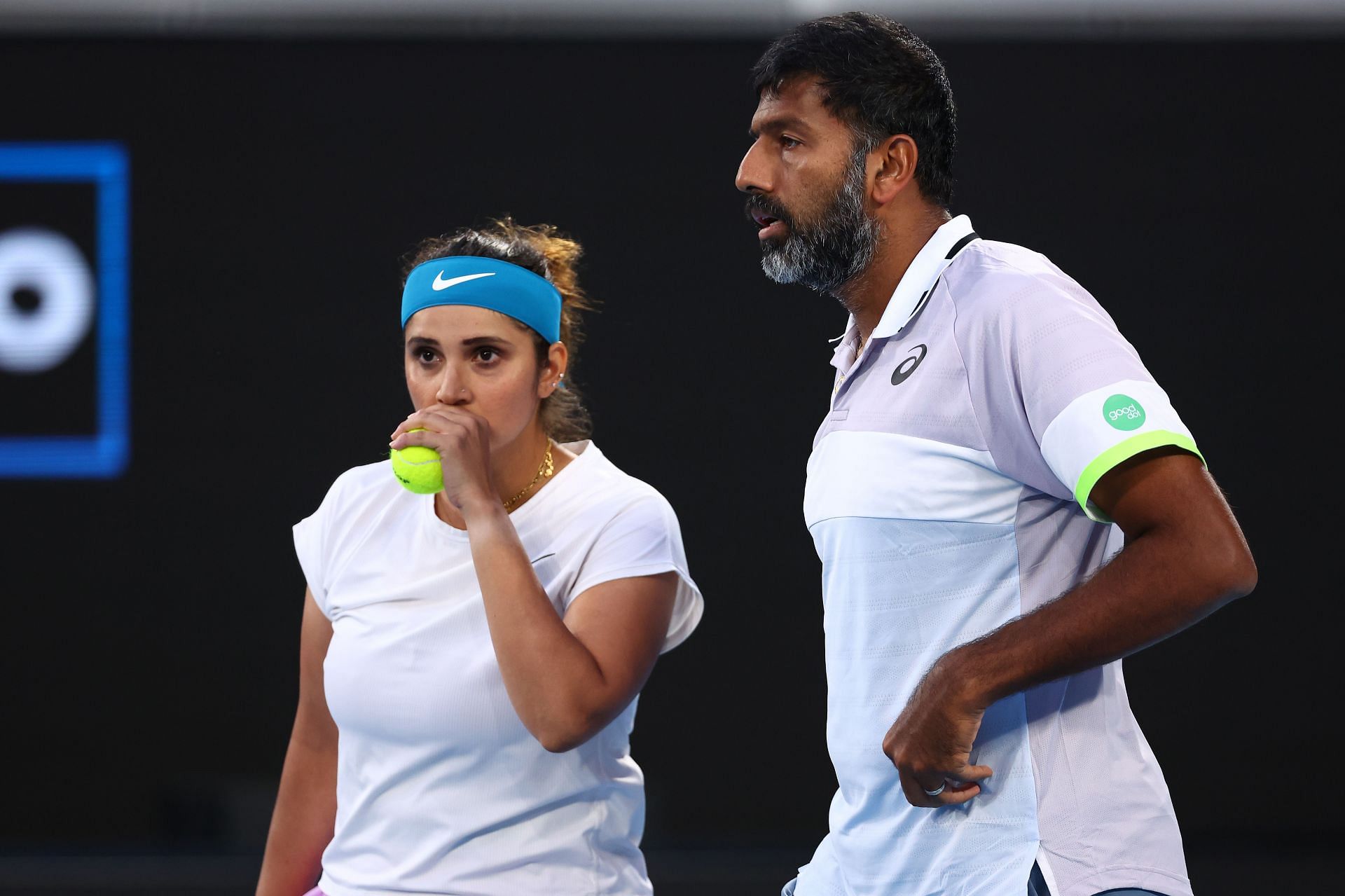
Q) How is your preparation for the Davis Cup and US Open shaping up, especially considering your impressive performance in Wimbledon? As one of the top players representing India, what steps are you taking to get ready for these upcoming tournaments?
Rohan Bopanna: After the long Wimbledon trip on the grass court, I prioritized taking a week off to recharge. I returned home to India and spent quality time with family and friends, engaging in activities I love, like swimming, yoga, and playing golf. Relaxing my mind fully during this break helps me refocus and prepare for the upcoming season.
I'm already back to training and in a week's time, I'll be heading to Toronto, Cincinnati, and then to the US Open. These big events are crucial not only for doing well in the tournaments themselves but also for our chances to qualify for the current Masters. While we are in a good position, there's still a lot of work ahead, as the season is long, stretching from Toronto to the end of the season in Turin.
I decided to take a good two-and-a-half week's break before resuming to prepare for the demanding schedule ahead. After the US Open, I'm eagerly looking forward to representing India in Davis Cup, which holds immense significance for me as it will be my final time representing the country in this competition. I am looking forward to playing my last tie. Thankfully, we have a home tie. So I am hoping to see what Lucknow has in store for us.
Q) As a senior player & mentor - how do you plan to take on the added responsibility of leading the doubles team and motivating your fellow players to perform at their best? Also, could you provide insights into the "Doubles Dream of India" initiative, its scope, and the potential impact it may have on promoting tennis in India?
Rohan Bopanna: The number one thing for me is to constantly give back to the sport and help the younger players coming up. I've learned so much from my seniors when I started playing Davis Cup in 2002, especially from Mahesh and Leander Paes. Now, I feel a strong responsibility to communicate and support the younger players.
I engage with them, understand their needs, and guide them on their calendars and tournament choices. I watch their matches and provide pointers on how they can improve. Initiatives like "Doubles Dream of India" have been started to support these players and ensure representation for India in the doubles circuit.
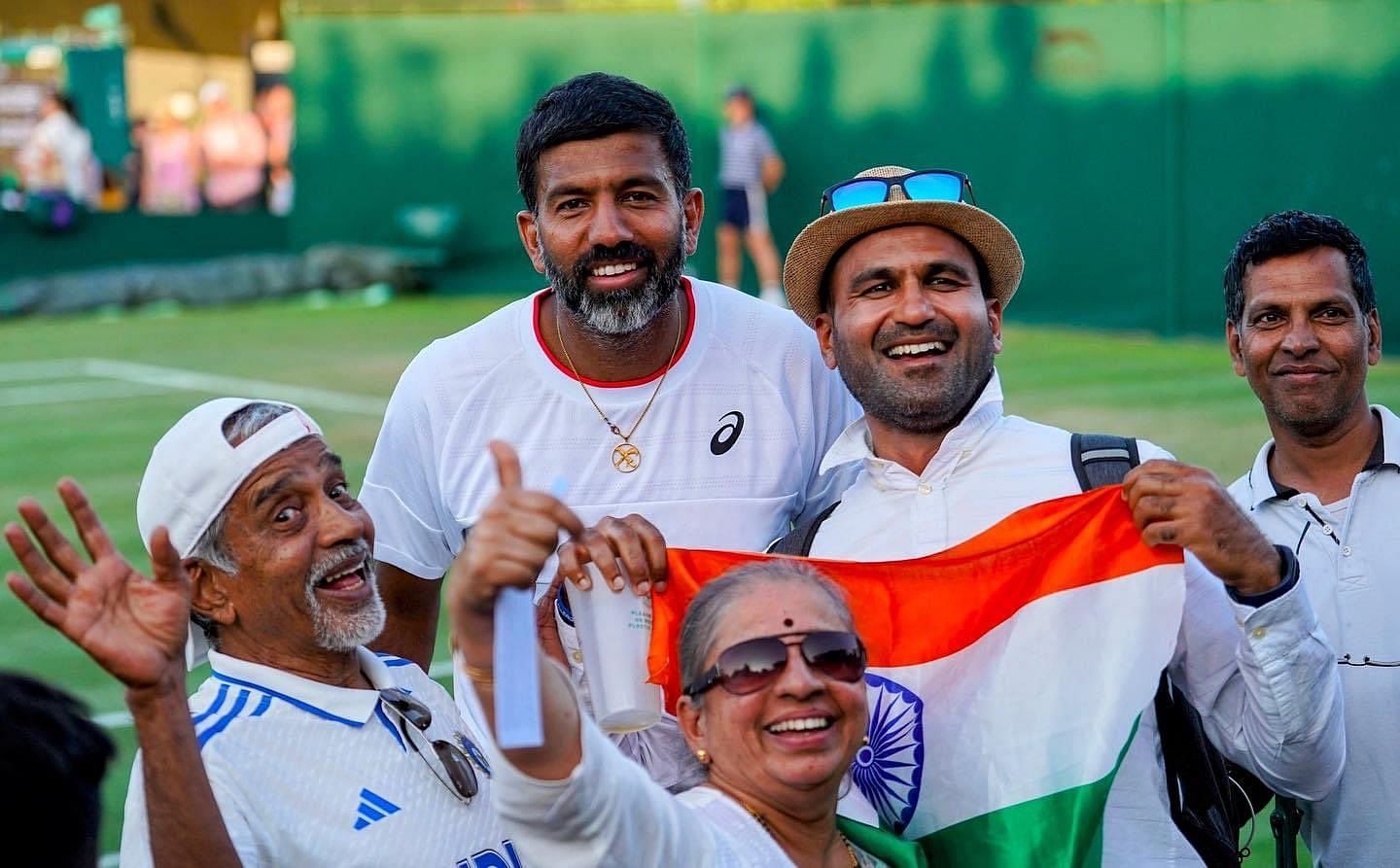
With around 10 players in the top 200, there is a great opportunity to provide support, including having a coach and physio traveling with them during the challengers. Mr. Kishore Patil and Abhishek Tamane have been instrumental in helping these players.
"Doubles Dream of India" aims to fill the gaps and support these players not just for a one-time success but to sustain and improve their careers over the next 10-15 years. It's essential to nurture talent and help them succeed on the international stage.
Rohan Bopanna's relentless dedication and passion for tennis continue to inspire a new generation of players in India. With his unwavering commitment to the sport and his Doubles Dream of India initiative, he is not only making a mark as a tennis star but also shaping the future of tennis in the country.

